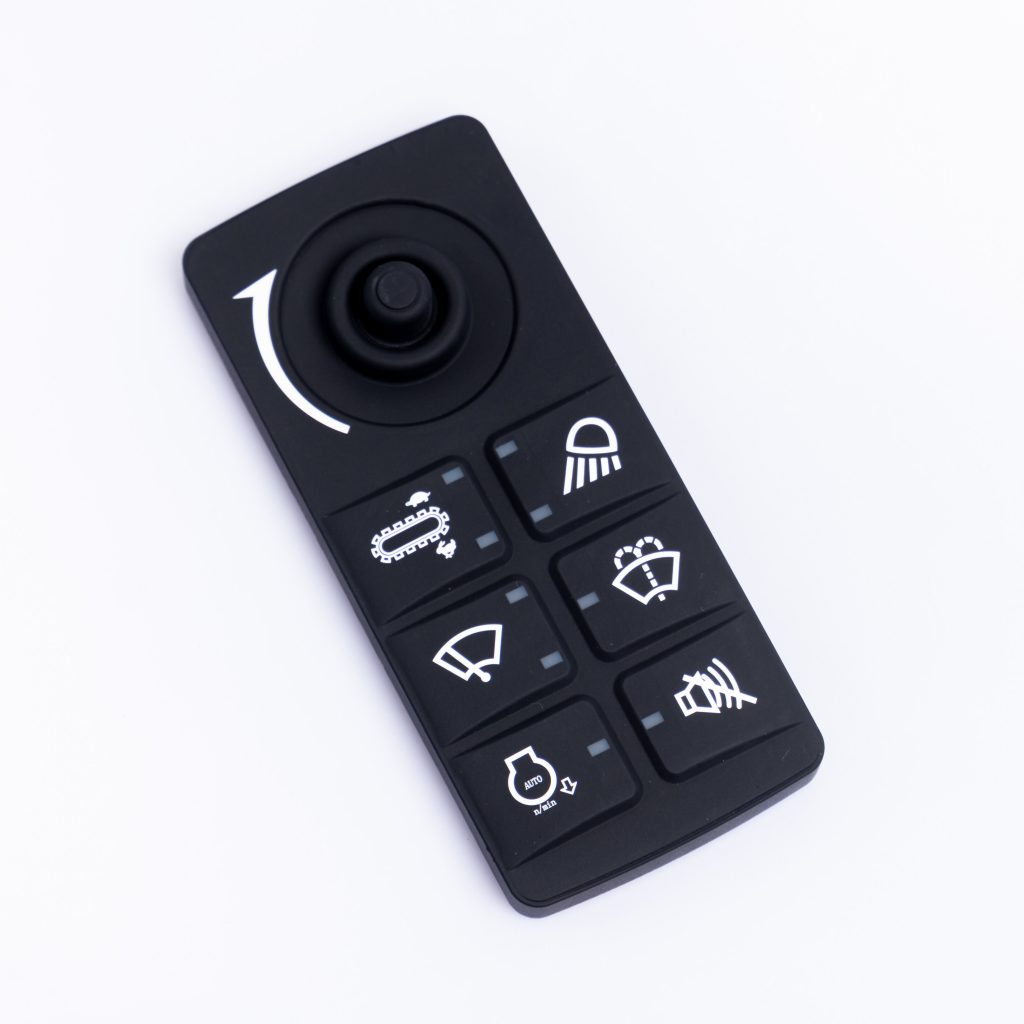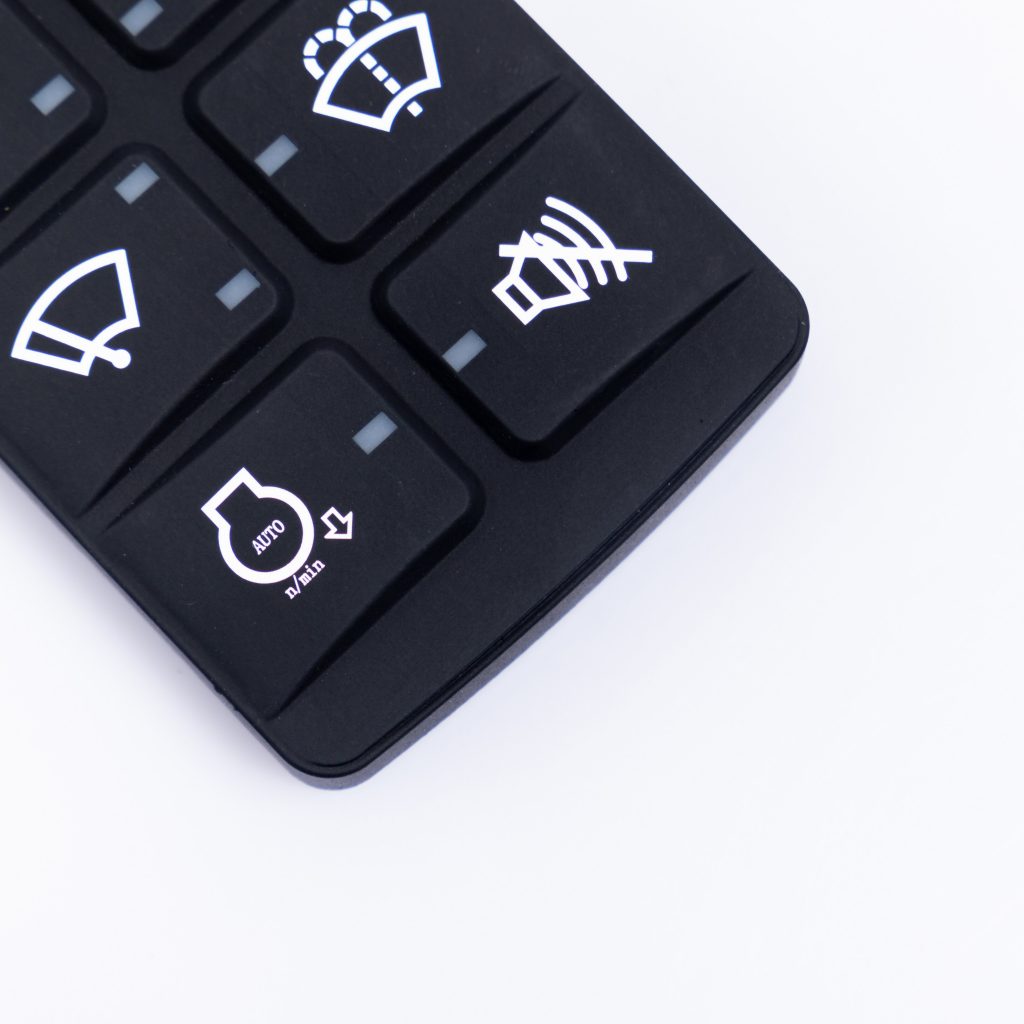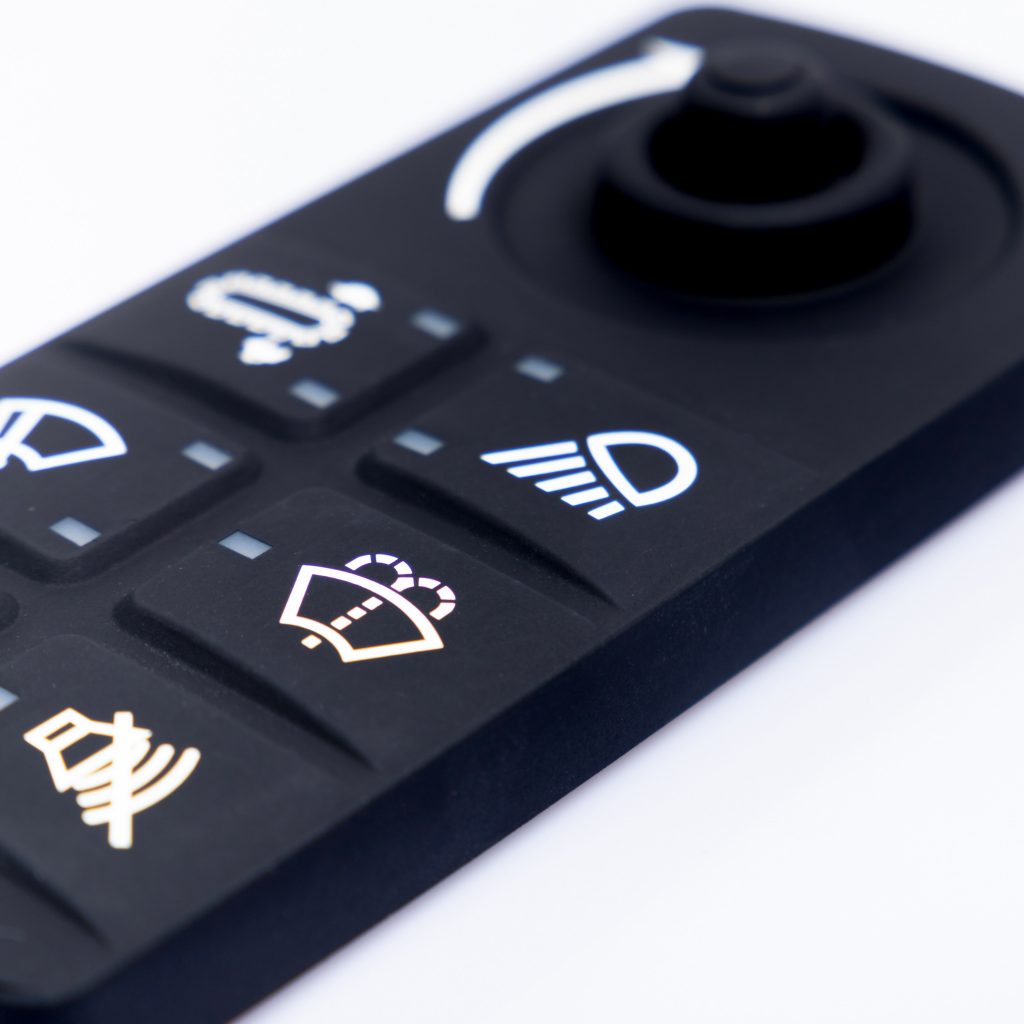Contact
Write to Us And We Would Be Happy to Advise You.
Do you have any questions, or would you like to speak directly with a representative?
By hqt
Silicone keypads are a crucial component of avionics control panels, providing tactile feedback to pilots and operators. However, ensuring optimal tactile feedback is essential for the safe and efficient operation of aircraft systems. In this article, we will explore various techniques to enhance the tactile feedback of silicone keypads used in avionics control panels.



Tactile feedback refers to the sensation of touch or resistance experienced when pressing a button or key. In avionics, tactile feedback is vital because it helps operators confirm that they have successfully activated a control function without the need to divert their attention from the task at hand.
Silicone keypads are a popular choice for avionics control panels due to their durability and flexibility. However, they can sometimes lack the desired tactile feedback, leading to operational challenges. Here are some common issues:
1. Insufficient Tactile Response
Silicone keypads may feel mushy or lack the distinct click associated with mechanical switches. This can result in operators inadvertently pressing keys or struggling to determine if a button press registered.
2. Inconsistent Feedback
Over time, silicone keypads may wear out, causing inconsistencies in tactile feedback. This can be a significant problem in critical avionic systems where precision is paramount.
To address these challenges, several techniques can be employed to improve the tactile feedback of silicone keypads.
1. Design Optimization
H1: Shape and Layout
The design of the silicone keypad itself plays a crucial role in tactile feedback. By optimizing the shape and layout of keys, manufacturers can ensure that each button press provides a satisfying and consistent tactile response.
H2: Material Selection
The choice of silicone material can greatly impact tactile feedback. Manufacturers can experiment with different silicone compounds to find the ideal balance between flexibility and resistance.
2. Actuation Force
H1: Adjusting Actuation Force
The amount of force required to press a key can significantly influence tactile feedback. By fine-tuning actuation force, manufacturers can make keypresses more distinct and responsive.
3. Conductive Materials
H1: Enhancing Conductivity
The use of conductive materials in silicone keypads can improve their performance. Silver-based inks and coatings can enhance the electrical conductivity of the keypad, ensuring reliable button recognition.
4. Backlighting
H1: Incorporating Backlighting
Backlit silicone keypads not only enhance visibility in low-light conditions but also improve the perception of tactile feedback. The visual confirmation of a button press can complement the tactile sensation.
In conclusion, optimizing the tactile feedback of silicone keypads for avionics control panels is essential for ensuring the safety and efficiency of aircraft systems. By focusing on design, materials, actuation force, conductive materials, and backlighting, manufacturers can enhance the overall user experience.
1. Why is tactile feedback important in avionics control panels?
Tactile feedback allows operators to confirm button presses without diverting their attention, enhancing safety and efficiency.
2. Can tactile feedback be improved without changing the entire keypad?
Yes, adjustments to design, materials, actuation force, and conductive materials can enhance tactile feedback without a complete redesign.
3. Are there risks associated with modifying silicone keypads for avionics?
Modifications should be carefully tested and validated to ensure they do not compromise the reliability of avionic systems.
4. What role does backlighting play in tactile feedback?
Backlighting not only improves visibility but also complements tactile feedback by providing visual confirmation of button presses.
Do you have any questions, or would you like to speak directly with a representative?